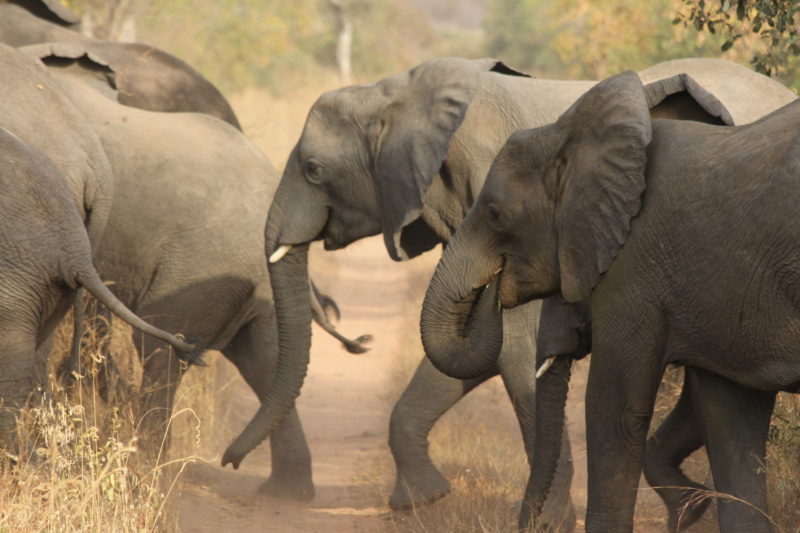When I conceived the thought to write about elephants as part of efforts to mark the World Elephant Day – observed on August 12, I got a link with a note about how an endangered species – a gorilla – was killed and butchered by hunters in Sapele, Delta State, Nigeria. The images were so gory.

We habitually excuse the ignorance of such perpetrators and justify such jail-worthy offense by hunger. The truth we are yet to tell ourselves is that we deny our generation and those unborn the enormous benefits that wildlife avails us.
The murder of the gorilla in Sapele is just one of the many unlawful killings of our priceless and irreplaceable creatures which are fast heading to extinction; all because of our unsustainable human activities.
Elephants are a wonderful part of our existence, they are the world’s biggest land animal with many unique features: long trunks, broad thick legs and large floppy ears used to emit heat from its body. I personally can’t imagine a world without elephants, hence my decision to join my voice with a million others to mark the 2017 World Elephant Day.
Remarkably, some recent studies describe elephants as probably the smartest land animal. They are seen to be very clever and intelligent as demonstrated in their display of altruism and innovation to find solutions to their challenges; however, these solutions are largely beneficial to the survival of other animals in the wild.
An elephant’s long trunk can spot a smell about four times as sensitive as a tracking dog (bloodhound). Reports show that elephants can smell water several miles away, making them the kings of the wild in seasons of drought as other animals sort to move around elephants in the knowledge that it will smell and dig out water for the lot. But what then do we benefit from conserving wildlife as humans?
Most medical discovery and recent breakthrough were made possible because of the presence of animals. Some of them are majorly adopted from the life style of animals then improved for the benefit of humans as observed in equipment and machines we use. We can’t live without them. Conserving these animals could help grow our enthusiasm towards science, hence new and improved innovations could be achieved from studying animal behaviours.
The elephant, as well as other wild animals, if conserved and properly managed, could help grow our nation’s economy through eco-tourism and give our landscape some priceless aesthetic values as seen in some developed nations. Imagine how much income would be generated through group visits, tours, exhibitions and research to conservation areas, parks and nature reserves? Put an estimate to how many idle hands will be gainfully employed?
The earlier we know that it is our duty to protect and conserve our ecosystem because they are unique to us, the better for us. Folks with these understanding should wildly share this knowledge; government is encouraged to lead with policies, strategies, and enforcement to ensure that we promptly reduce poaching and illegal killings of wildlife knowing that we are all part of a web of life when one individual disappears others are the risk of disappearing as a result.
“When the last trees cut down, when all the animals are hunted, when all the waters are polluted, when the air is unsafe to breathe, only then will we realise that one cannot eat money”. – Cree Prophecy.
By Udo-Azugo Somtochukwu, Adebote ‘Seyifunmi and Alli Abiola
